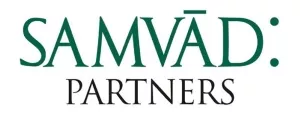INTRODUCTION
A seven-judge bench of the Hon'ble Supreme Court ("Second Constitution Bench") in In Re: Interplay between Arbitration Agreements under the Arbitration and Conciliation Act 1996 and the Indian Stamp Act 1899 ("In re: Interplay") conclusively answered the issue regarding the enforceability of arbitration agreements contained within unstamped or insufficiently stamped contracts.
The Second Constitution Bench unanimously held that even though such agreements are inadmissible in evidence under Section 35 of the Indian Stamp Act, 1899 (the "Stamp Act"), they cannot be rendered void or void ab initio and once the non-stamping or inadequate stamping is cured, the arbitration agreement contained within the contract can be enforced.
Accordingly, the Second Constitution Bench overturned the majority judgment in N.N. Global Mercantile Private Limited v. Indo Unique Flame Limited, (2023) 7 SCC 1 ("NN Global II"/"First Constitution Bench") which had held that an arbitration agreement contained in an unstamped/inadequately stamped agreement is void ab initio and therefore cannot form the basis for constituting an arbitral tribunal
The Second Constitution Bench found that a referral court cannot refuse to refer parties to arbitration under section 8 or 45 of the Arbitration and Conciliation Act, 1996 (the "Arbitration Act") or refuse to appoint an arbitrator under section 11 of the act and then proceed to impound the contract on the ground that it is unstamped or inadequately stamped.
Post this judgment, the role of the referral court has been curtailed to examining on a prima facie basis the existence of the arbitration agreement under section 7 of the Arbitration Act while leaving all other preliminary issues, including on stamp duty, to the arbitral tribunal.
JUDICIAL HISTORY
A brief history of the judicial authorities leading up to the reference to the Second Constitution Bench is given below.
In SMS Tea Estates (P) Ltd. v. Chandmari Tea Co. (P) Ltd, (2011) 14 SCC 66 ("SMS Tea"), a Division Bench of the Supreme Court held that, considering Section 35 of the Stamp Act, which bars the unstamped contract from being admitted in evidence, the arbitration agreement contained in such an instrument will consequently be unenforceable. This allowed courts to interfere at the referral stage and impound contracts before the arbitral tribunal could be constituted.
The three-judge bench in NN Global Mercantile (P) Limited v. Indo Unique Flame Limited, (2021) 4 SCC 379 ("NN Global I") set aside the finding in SMS Tea but considered itself bound by the judgment of the Division Bench in Garware Wall Ropes as it was affirmed by a coordinate bench in Vidya Drolia, (2021) 2 SCC 1. Accordingly, the three-judge bench referred the following question of law to a five-judge bench:
"Whether the statutory bar contained in Section 35 of the Stamp Act, 1899 applicable to instruments chargeable to stamp duty under Section 3 read with the Schedule to the Act, would also render the arbitration agreement contained in such an instrument, which is not chargeable to payment of stamp duty, as being non-existent, unenforceable, or invalid, pending payment of stamp duty on the substantive contract/instrument?"
This was answered in the affirmative by the majority (3:2) in NN Global II who affirmed Garware Wall Ropes, whilst the minority considered it to be bad law. The Second Constitution Bench summarised the findings of the majority in the NN Global II succinctly as follows:
- An unstamped instrument containing an arbitration agreement is void under Section 2(g) of the Contract Act;
- An unstamped instrument, not being a contract and not enforceable in law, cannot exist in law. The arbitration agreement in such an instrument can be acted upon only after it is duly stamped;
- The "existence" of an arbitration agreement contemplated under Section 11(6A) of the Arbitration Act is not merely a facial existence or existence in fact, but also "existence in law";
- The Court acting under Section 11 of the Arbitration Act cannot disregard the mandate of Sections 33 and 35 of the Stamp Act requiring it to examine and impound an unstamped or insufficiently stamped instrument; and
- The certified copy of an arbitration agreement must clearly indicate the stamp duty paid.
To view the full article, click here.
The content of this article is intended to provide a general guide to the subject matter. Specialist advice should be sought about your specific circumstances.
We operate a free-to-view policy, asking only that you register in order to read all of our content. Please login or register to view the rest of this article.





